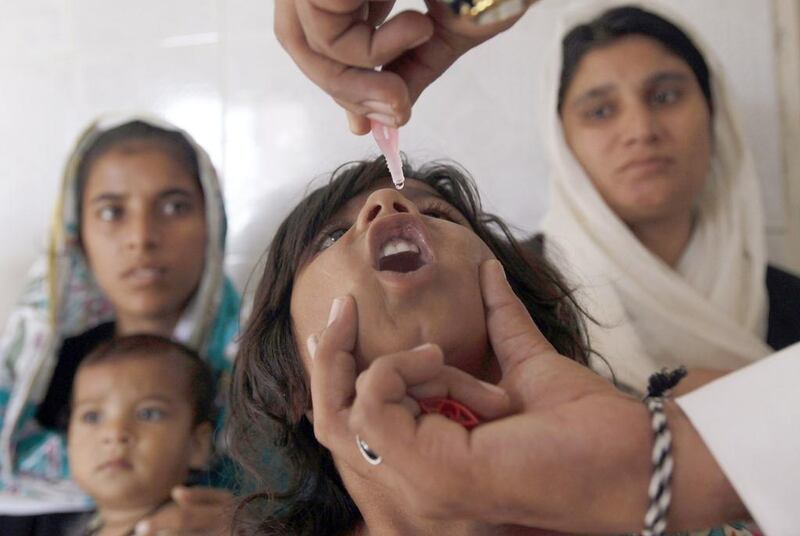Pakistan is struggling to eradicate polio. The World Health Organisation (WHO) holds the country responsible for 80 per cent of cases reported globally. But what hampers Pakistan from becoming a polio-free country?
The country faces two major issues. First is safe access to unvaccinated children and second is how to tackle vaccination-refusal cases.
Islamist extremists have made safe access to children very difficult in the restive Khyber Pakhtunkhwa province and in some areas of southwestern Baluchistan province. These are the high-risk areas where more than three-quarters of cases have been reported. Last year WHO declared Peshawar, the capital of Khyber Pakhtunkhwa, as the world’s “largest reservoir” of endemic polio.
Pakistan initiated the national polio eradication programme in 1994. By 2005, the number of polio cases in the country had been reduced to 28. But the situation worsened after 2005 when the Taliban increased its influence in the country’s tribal region. In June 2012, the Taliban banned polio vaccination in the country’s tribal areas and put more than 300,000 children at risk.
“The situation is primarily due to a lack of access to children for vaccination, largely owing to a continuing ban on immunisation imposed by militants in the North and South Waziristan, and insecurity and killing of polio workers in the field,” says a WHO report.
It is not merely extremism that has hampered polio eradication efforts in Pakistan. There are critical issues of governance. There are also reports of the embezzlement of funds released for polio workers at the local level. This month, health workers refused to carry on with the anti-polio drive in tribal areas over non-payment of stipends.
The country faces a polio emergency, but Pakistani authorities seem to have adopted a sluggish approach to dealing with the problem posing disability risks to the children. The tens of thousands of children in refugee camps could be reached out to immediately with immunisation. The Independent Monitoring Board (IMB) of the Global Polio Eradication Initiative in its recent report has called the country’s polio programme a “disaster”. In a letter to the head of Unicef, the IMB chairman warned that the initiative might have a tough time in obtaining funding if the priorities of the programme were not rearranged to focus on ridding Pakistan of the curse of polio and focusing on immunisation as a top priority.
What should the government do to make its polio programme a public health success story?
The country lacks effective tools to monitor immunisation campaigns.
An efficient monitoring system on modern lines should be introduced to ensure accountability and accuracy.
The government should develop a comprehensive polio eradication plan. It should provide foolproof security to the polio eradication workers in the country’s high-risk areas. Dozens of polio volunteers were shot dead in the country over the past two years.
It is generally perceived that vaccination refusals in high-risk areas are because of the radical mindset produced by religious extremists, who consider vaccination campaigns are a cover for espionage by the Western powers.
The Taliban declared the polio vaccine as un-Islamic because they allege it contains pig fats and develops infertility.
The Taliban’s propaganda against the polio vaccine must be countered by launching a massive awareness campaign to strengthen public support for the country’s Expanded Programme on Immunisation. The religious scholars belonging to different sects of Islam can play an important role to bring a change in the “Talibanised” mindset hampering anti-polio campaigns in the country’s high-risk areas. Certainly a joint effort by Islamic scholars and an intersectoral collaboration for polio eradication will be a major step towards a polio-free Pakistan.
The children are the future of the nation. The government will have to take serious measures to avoid a problematic future for Pakistan.
A polio-free Pakistan is not only essential for the country, it will also help pave the way for a polio-free world.
Syed Fazl-e-Haider is a development analyst in Pakistan





